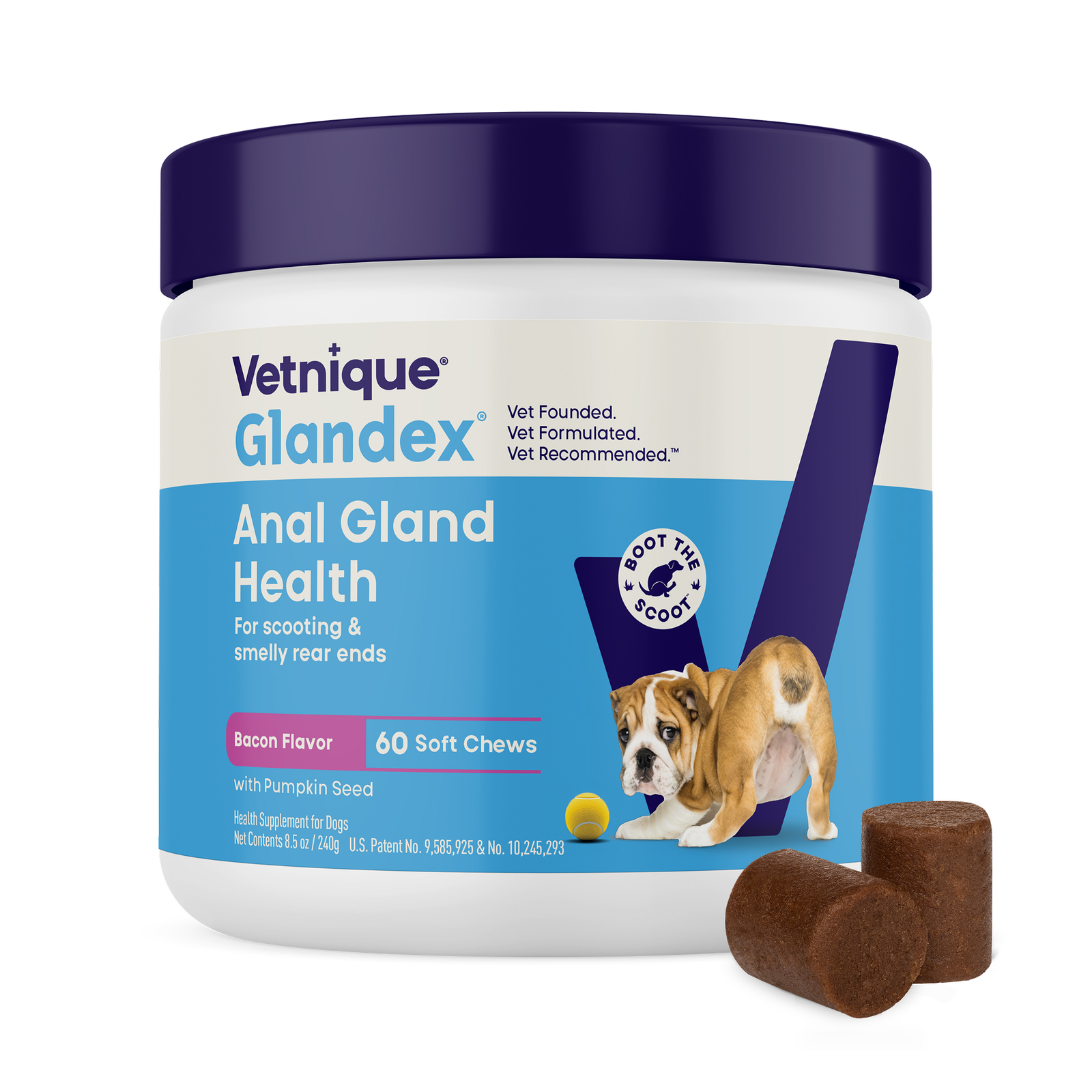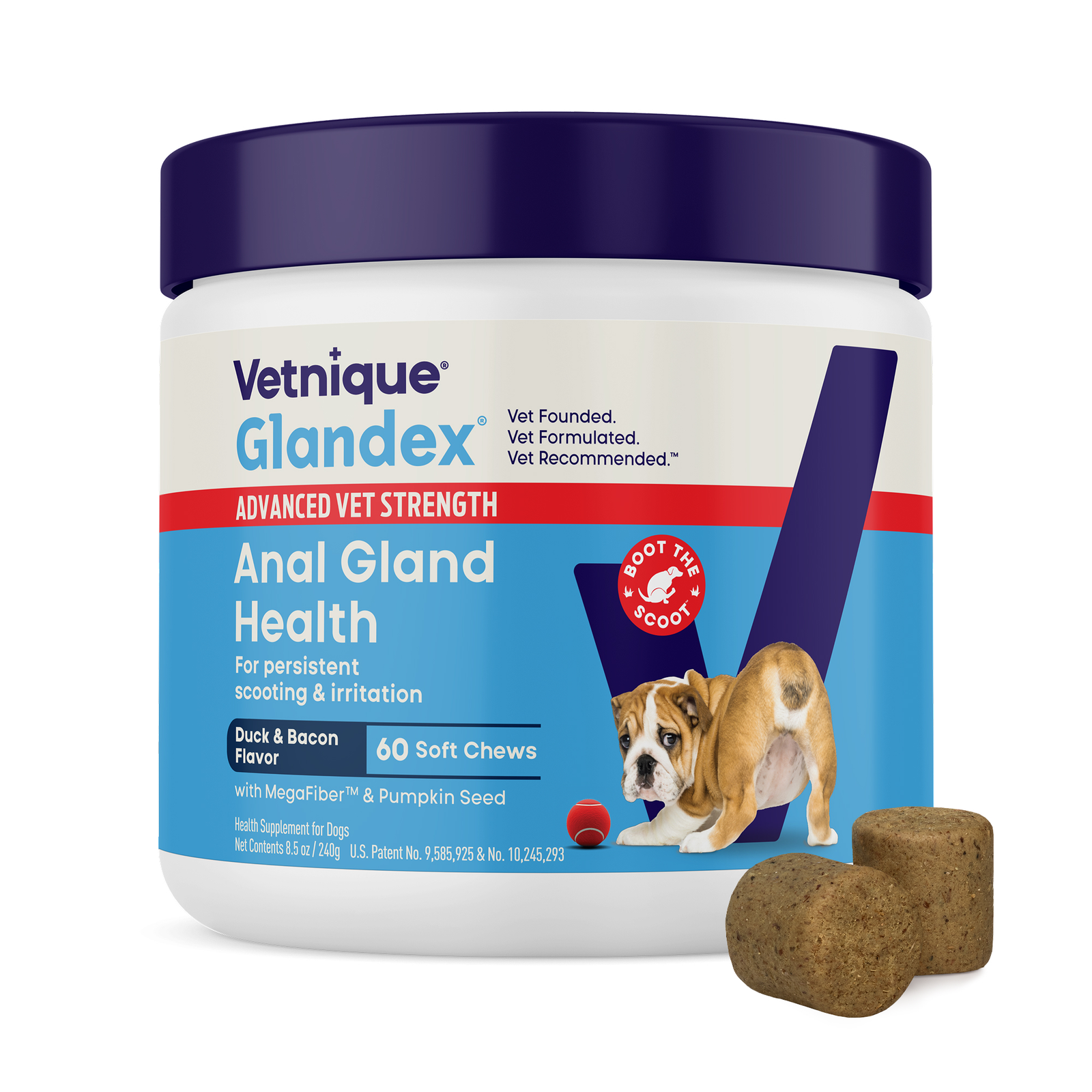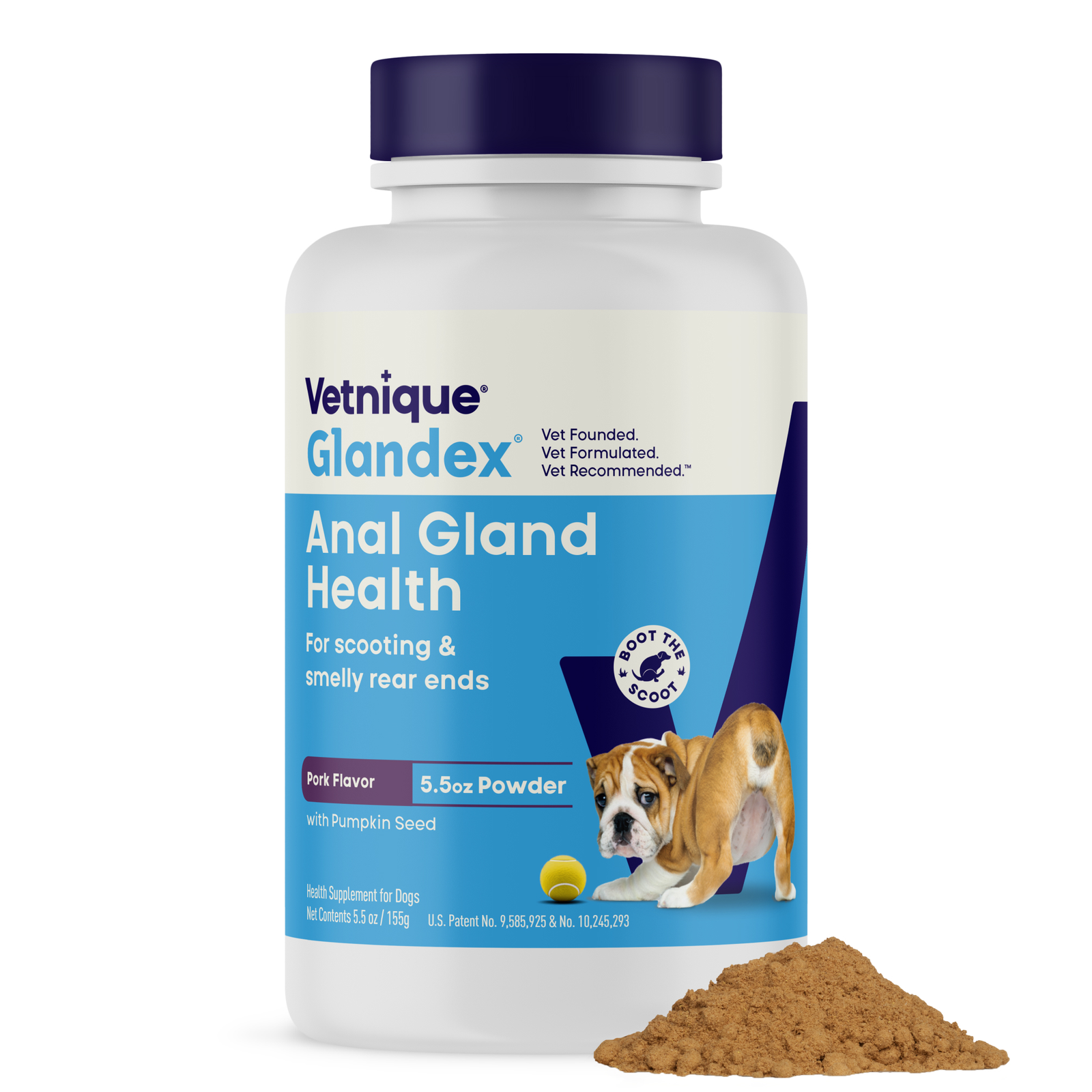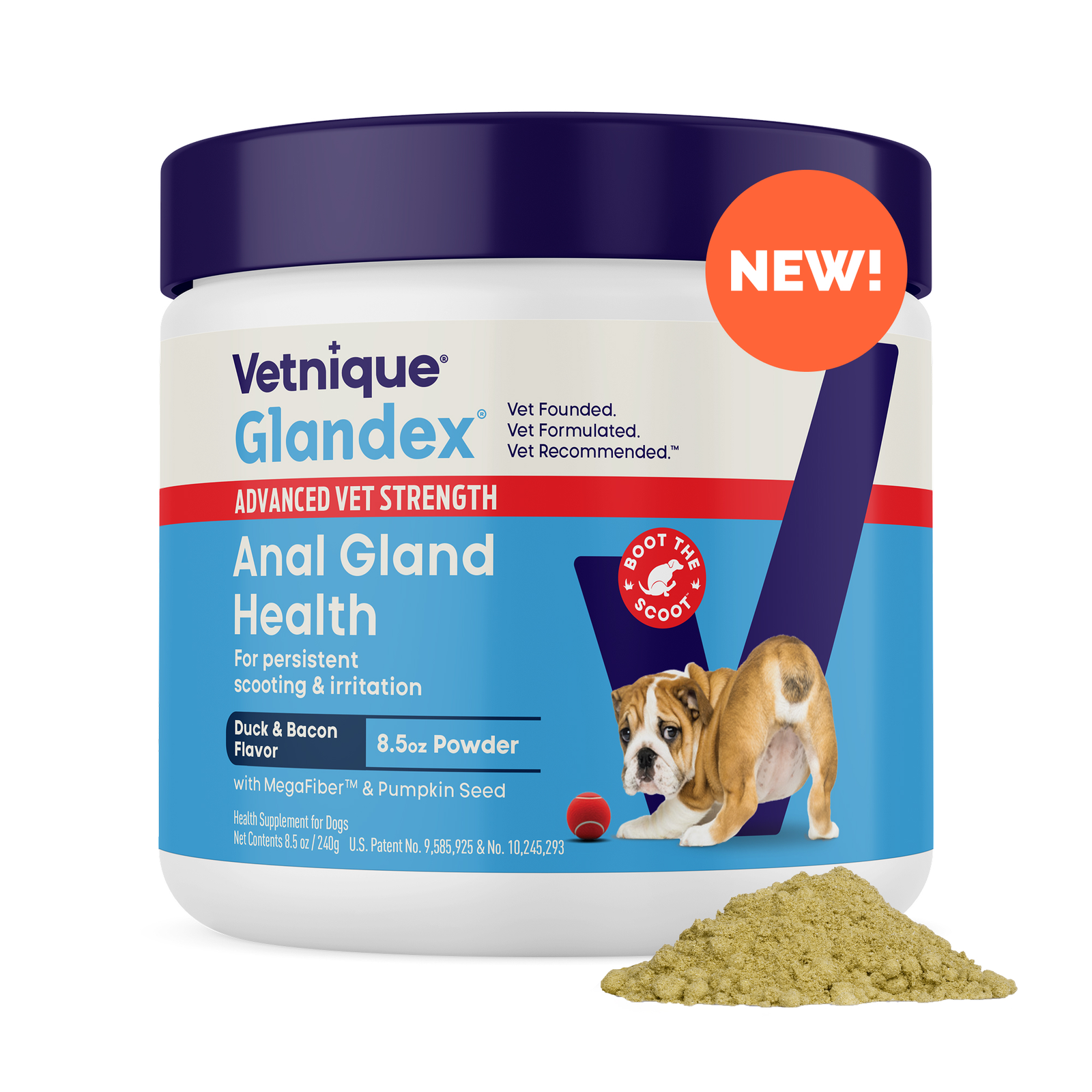
Chronic Ear Infections: Why Does My Dog Keep Getting Ear Infections?
Vet Verified
WRITTEN BY DR. PATRICK MAHANEY

Chronic ear infections are a common and frustrating issue for many dog parents. Not only do ear infections cause significant discomfort for your four-legged companion, but they can also lead to more serious health problems if left untreated. Understanding the underlying causes of why your dog keeps getting ear infections is crucial for effective treatment and prevention.
As a veterinarian, I frequently encounter cases of chronic ear infections in dogs and am here to provide insights into the causes, symptoms, and treatment options to help your pet stay healthy and comfortable.
What are chronic ear infections?
Chronic ear infections in dogs refer to persistent or recurring infections in the ear canal. These can affect the outer ear (otitis externa), the middle ear (otitis media), or the inner ear (otitis interna). Unlike acute ear infections, which may resolve with short-term treatment, chronic infections often require ongoing medical management and care.
The ear canal's warm, moist environment makes it a perfect breeding ground for bacteria and yeast, which can lead to infections. Dogs with chronic ear infections typically experience inflammation and irritation, which can cause significant discomfort and potentially lead to more severe health issues if not properly managed.

What causes chronic ear infections in dogs?
Understanding what causes ear infections in dogs is key to preventing and managing these recurring issues. Here are some common factors that contribute to chronic ear infections in dogs:
allergies
Allergies are a leading cause of ear infections in dogs. In fact, almost 45% of ear infections are linked to allergies, with up to 80% of dogs with food allergies being affected by ear infections*. Food allergies, environmental allergies (including seasonal and non-seasonal allergens, like pollen, dust mites, and others), and flea allergies can all cause inflammation in the ear canal, leading to infections.
Hormonal Imbalances
Ailments that cause hormonal imbalances, including Hypothyroidism (under-functioning thyroid glands), Custhing's disease (over-functioning adrenal glands), and others can affect your dog's skin and ear health, making them more prone to infections.
Ear Anatomy
Certain breeds, particularly those with floppy ears (closed ear canal) like Basset Hounds, Cocker Spaniels, Golden and Labrador Retrievers are more susceptible due to their ear structure. Floppy ears cause a lack of airflow in the ear canal, trapping moisture to create an ideal micro-environment for the growth of bacteria and yeast.
Moisture
Dogs that swim frequently or have their ears exposed to water (grooming, playing around water, etc.) often are at a higher risk for developing ear infections. Moisture in the ear canal creates a breeding ground that fosters the growth of infectious organisms.
Foreign Bodies
Plant awns (foxtails, etc.), grass seeds, soil, and other environmental materials can get lodged in the ear canal, leading to irritation, infection, penetrating injury, and other issues.
Ear Mites
These tiny parasites can cause intense itching and inflammation, leading to secondary infections with normal skin bacteria and yeast.
Autoimmune Diseases
Certain immune-mediated diseases and their medical treatment can cause immunosuppression, making infections of the skin and ear more likely.

Signs & symptoms of ear infections in dogs
Recognizing the signs and symptoms of ear infections is crucial for early intervention and effective treatment. Common symptoms include:
- Head-Shaking and Scratching: If your dog is constantly shaking their head or scratching at their ears, it could be a sign of an ear infection.
- Odor: A foul smell emanating from the ears is often indicative of an infection.
- Redness and Swelling:Inflammation of the ear canal can cause the noticeable appearance of redness and swelling.
- Discharge: Pus (accumulation of white blood cells), waxy buildup, or other discharge from the ear is a common symptom of infection.
- Pain and Sensitivity: Your dog may react with pain or discomfort when their ears are touched.
- Balance Issues: In severe cases, ear infections can affect your dog's balance, leading to stumbling or difficulty walking.
If your dog keeps getting ear infections and exhibits any of these symptoms, it's important to consult your veterinarian for a thorough examination and diagnostic testing to achieve a diagnosis.
Why does my dog keep getting ear infections?
You might be wondering, "Why does my dog keep getting ear infections?" Chronic ear infections often result from a combination of factors that create a perfect storm for recurring problems. Here are some reasons why chronic canine ear infections may persist:
- Persistent Allergies: Ongoing exposure to allergens can continuously trigger inflammation in the ear canal.
- Improper Ear Cleaning: While regular cleaning is important, over-cleaning, under-cleaning, or using inappropriate products can irritate the ear canal and lead to infections.
- Unresolved Underlying Conditions: If an underlying condition, such as hypothyroidism or autoimmune or immune-mediated disease, isn't properly managed, ear infections are likely to recur.
- Anatomical Factors: Breeds with floppy ears or narrow ear canals are inherently more prone to ear infections due to poor air circulation and increased moisture retention.
- Environmental Factors: Humid climates or frequent swimming can contribute to a moist environment in the ear canal, fostering infections.
- Incomplete Treatment: Not completing a prescribed course of antibiotics or other medications can allow an infection to persist or recur.
Treatment options for recurring ear infections
Addressing recurring ear infections in dogs requires a comprehensive approach that includes both immediate and long-term strategies. Here are some effective treatment options:
2. Ear Cleaning: Regular cleaning of the ear canal with a veterinarian-recommended solution helps remove debris and discharge, preventing further infections.
3. Addressing Allergies: Managing underlying allergies through dietary changes, allergy medications, or immunotherapy can significantly reduce the recurrence of ear infections.
4. Managing Underlying Conditions: Treating hormonal imbalances or autoimmune or immune-mediated diseases can help improve overall ear health.
5. Surgery: In severe cases, surgical intervention may be necessary to correct anatomical issues or remove chronically inflamed and/or infected tissues.
By incorporating these preventive measures into your dog's routine care, you can significantly reduce the risk of hot spots and promote overall skin health.
At-home treatments for dog ear infections
In addition to professional veterinary care, there are several at-home treatment options for dog ear infections that can help manage and prevent future issues:
- Regular Ear Cleaning: Use a veterinarian-recommended ear cleaner to keep your dog's ears clean and free of debris. Avoid using cotton swabs deep in the ear canal, as this can cause injury and push wax, debris, and infectious organisms deeper into the ear canal.
- Flushing & Drying Ears After Swimming: Ensure your dog's ears are flushed or dried after swimming to prevent moisture buildup. Flushing with a veterinary-approved ear cleaning solution can help to remove water from the ear canal. The solution does not have to be dried/removed. Remember, water should not be permitted to remain in the ear canal post-swim, bath, or play in water.
- Monitor Allergies: Keep an eye on potential allergens in your dog's environment and diet. Consult your veterinarian about possible allergy testing or dietary adjustments.
- Maintain a Healthy Diet: A balanced diet can support overall health and reduce the risk of ar inflammation and infections. Consult with your veterinarian about a food elimination trial that can exclude protein and/or carbohydrate sources that can serve as allergic triggers to suit your pet's needs.
In a nutshell, regular veterinary check-ups and a proactive approach to ear care are essential for preventing and managing these persistent infections. By understanding the causes and symptoms of chronic ear infections in dogs and implementing effective treatments, you can help your furry friend enjoy a happier, healthier life without the discomfort of recurring ear issues.
Join the Pack!

Sign up for exclusive deals, curated pet tips from veterinarians, and product launches!
Pet Parents are Also Reading
January, 2024
January, 2024
June, 2023
December, 2023
Written By a Vetnique Vet

Dr. Patrick Mahaney, VMD, CVA, CVJ
Dr. Patrick Mahaney works as a concierge-style veterinarian and has a number of celebrity clients through his house-call practice, California Pet Acupuncture and Wellness. He loves building personal, long-term relationships with his clients to best suit their pets’ needs within the comfortable confines of their homes.
To spread his message of holistic veterinary medicine on a large-scale basis, Dr. Mahaney attained a Certified Veterinary Journalist certificate and enjoys contributing to pet-related media projects. He is also a certified veterinary acupuncturist.



















